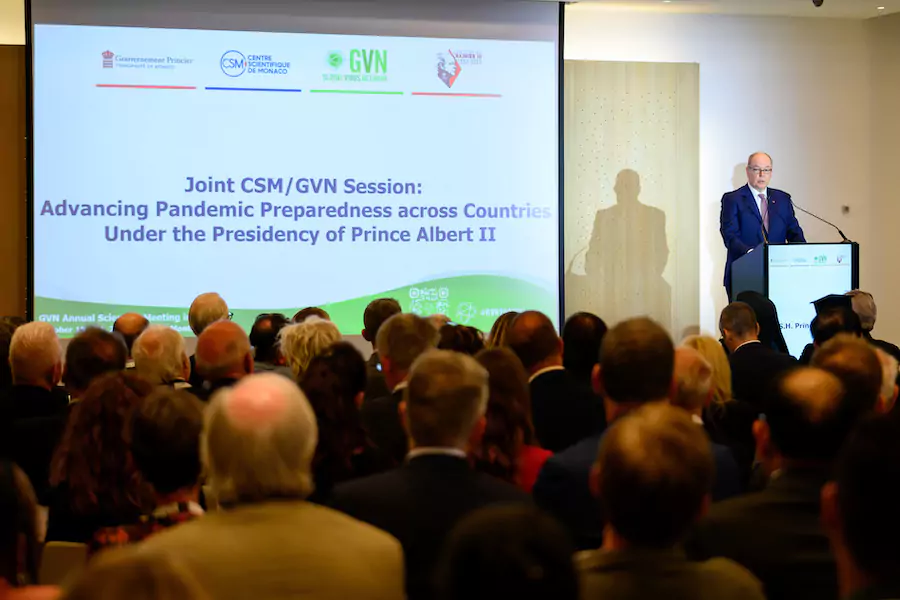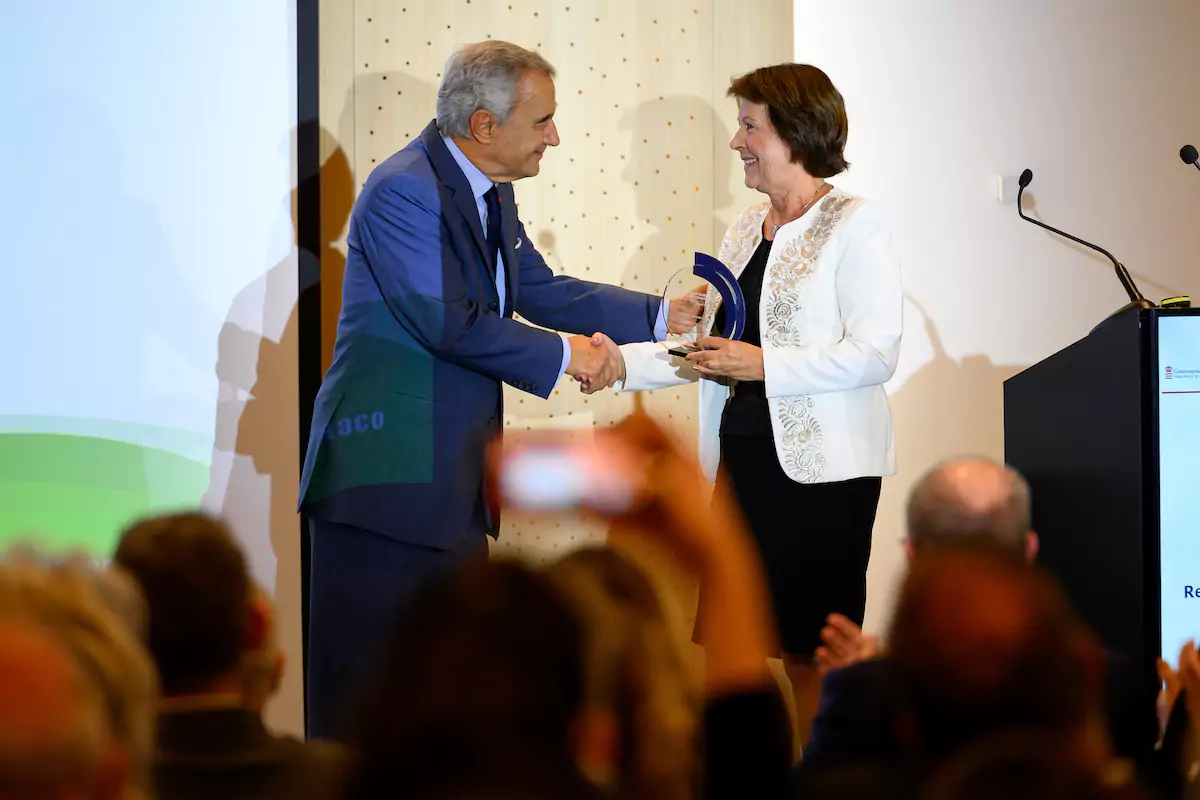The WHO has awarded Professor Patrick Rampal, president of the Scientific Centre of Monaco, for his “contribution to health and sustainable development” during a symposium which brought together virus specialists in Monaco to discuss how to manage future epidemics.
While the World Health Organisation declared an end to the state of emergency over the Covid-19 pandemic on 5th May 2023, health monitoring authorities are facing a worsening risk of crisis around the world, with up to 7,000 epidemic signals each month.
There is no secret as to the cause of these epidemics: global warming that is fostering the emergence of pathogens formerly limited to tropical zones; the extension of urban environments into wild areas; farms and intensive breeding; and mass tourism.
It is in this context that a symposium was held in Monaco on 19th October co-organised by the Monaco Scientific Centre and the Global Virus Network, entitled ‘Improving Preparedness for Future Pandemics’.

Early detection is key
At this symposium, chaired by Prince Albert II of Monaco, the European Director of the World Health Organisation (WHO), Dr.Hans Kluge, insisted on the need “to set up a surveillance system which provides real-time propagation data (..) to protect the population.”
Alongside the WHO, some of the world’s leading experts were able to highlight the important collaboration between European health monitoring systems.
“The challenge is to quickly detect and communicate information about these agents with pandemic potential which know no borders. Whether in humans, in water, in the air, or in mosquitoes, the implementation of such systems of health surveillance represents a key measure for protecting populations.”
The symposium was also an opportunity to identify health monitoring strategies that make it possible to extend monitoring of these pathogens and their mutations in humans and the environment, in order to best adapt treatments, particularly in terms of vaccines.
“Pathogen surveillance is a matter of national security,” said Pofesseur Lanfa Wang, director of the Research Program for Epidemic Preparedness and Response (PREPARE) of Singapore. “In peacetime, you must do everything to prepare for war. Singapore is a small country, like Monaco, and we have set up a sampling system of mosquitoes, water and air to identify circulating pathogens.”
Monaco professor awarded for his work
During the symposium, Professor Patrick Rampal, president of the Scientific Centre of Monaco, received the World Health Organisation Award for his contribution to health and sustainable development in the WHO European region.
“I would like to express my gratitude and appreciation for the remarkable work of Professor Rampal,” said explained Dr. Hans Henri P. Kluge, Director of the WHO Europe Zone.
Make sure you’re never left out of the conversation.
Sign up for the Monaco Life newsletter, and follow us on Facebook, Twitter, Instagram and LinkedIn.
Main photo: Professor Patrick Rampal receiving his award. Source: CSM
